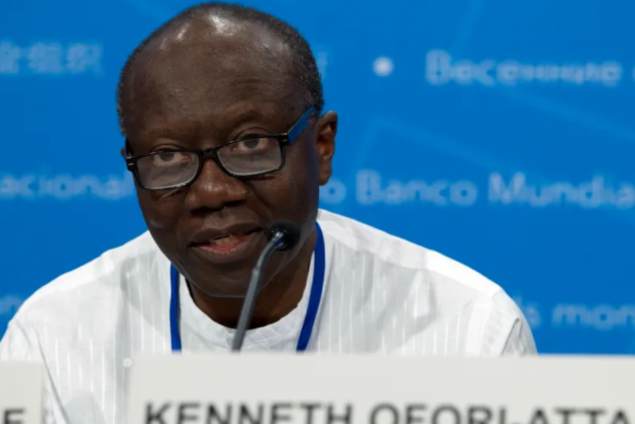Government has been told to exempt vehicle insurance funds from the Domestic Debt Exchange Programme (DDEP) despite reaching an agreement with insurance firms on the DDEP.
According to Young Africans for Opportunities, exempting vehicle insurance would not significantly impact the government's DDEP because the government needs to first demonstrate its commitment to ensuring financial stability rather than falling on individuals' funds safeguarded for unforeseen circumstances.
“Despite the agreement with the Ghana Insurers Association, caution needs to be taken as the entities that watched on for the government to excessively borrow into this current crisis are the same entities to supervise risk mitigations, hence, we cannot afford to risk vehicle insurance that would be needed to during an eventuality”, it said in a statement.
The DDEP is an invitation involving 137 billion exchange for domestic notes and bonds and promises to deploy all regulatory and supervisory tools to mitigate risks to financial stability.
The Young Africans for Opportunities pointed out that “despite the agreement with the Ghana Insurers Association, caution needs to be taken as the entities that watched on for the government to excessively borrow into this current crisis are the same entities to supervise risk mitigations, hence, we cannot afford to risk vehicle insurance that would be needed to during an eventuality”.
The National Road Safety Authority (NRSA) reported that a total of 17,272 vehicles were involved in accidents of which about 1,900 lives perished in 2022.
Therefore, it said, there is a need for the readiness of funds to compensate victims during any eventuality, adding, “In Ghana, insurance penetration is low due to a widespread notion of unwillingness to pay claims to subscribers.
“According to our Driver Mo 2022 report, the benefit of vehicle insurance is yet to be realised because most subscribers have reported that they subscribe to third-party to avoid police harassment and also to fulfill statutory obligations, making most Ghanaians reluctant to report for insurance claims”, it added.
Furthermore, the Young Africans for Opportunities said the current situation of the country’s debt to Gross Domestic Product (GDP) hovering around 97% was not a sudden event, but an accumulation of reckless borrowing and spending.
“Statutory bodies and regulators have watched on for the government to over borrow. It is trite that we cannot as a nation borrow our way to prosperity. It is time to put a ceiling on government borrowing and provide a transparent and participatory process for the increment of such ceiling if the need arises”.
Also, it advised the government to approach the crisis holistically and demonstrate commitment by reducing the size of government, employing fiscal discipline, and cutting down not only on spending but also reducing government waste.
Latest Stories
-
Blue Gold Bogoso Prestea Limited challenges government actions in court
25 minutes -
Patrick Atangana Fouda: ‘A hero of the fight against HIV leaves us’
1 hour -
Trinity Oil MD Gabriel Kumi elected Board Chairman of Chamber of Oil Marketing Companies
2 hours -
ORAL campaign key to NDC’s election victory – North America Dema Naa
2 hours -
US Supreme Court to hear TikTok challenge to potential ban
2 hours -
Amazon faces US strike threat ahead of Christmas
3 hours -
Jaguar Land Rover electric car whistleblower sacked
3 hours -
US makes third interest rate cut despite inflation risk
3 hours -
Fish processors call for intervention against illegal trawling activities
3 hours -
Ghana will take time to recover – Akorfa Edjeani
4 hours -
Boakye Agyarko urges reforms to revitalise NPP after election defeat
4 hours -
Finance Minister skips mini-budget presentation for third time
4 hours -
‘ORAL’ team to work gratis – Ablakwa
4 hours -
Affirmative Action Coalition condemns lack of gender quotas in Transition, anti-corruption teams
4 hours -
December 7 election was a battle for the ‘soul of Ghana’ against NPP – Fifi Kwetey
4 hours

